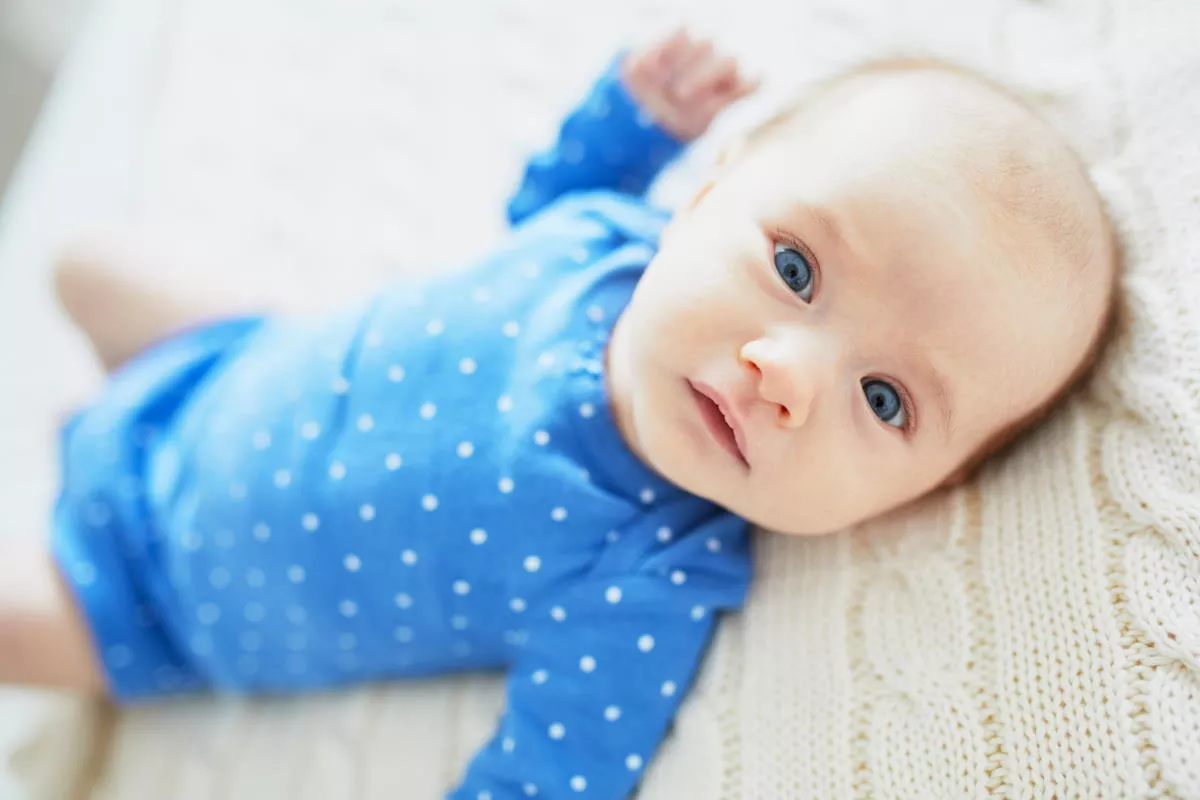Will your baby’s blue eyes stay that way? It’s possible, but not guaranteed. Babies born with blue or grey-colored eyes may end up with a different eye color later on. This is because of the pigmentation process, which continues to develop after a baby is born.
Caucasion babies are generally born with blue or grey eyes, but much of the time, their eyes darken to green, hazel, or brown by age one. Some babies won’t settle into a final eye color until closer to age two.

Comments
Post a Comment